Haitian prison rife with malnutrition and disease
- Published
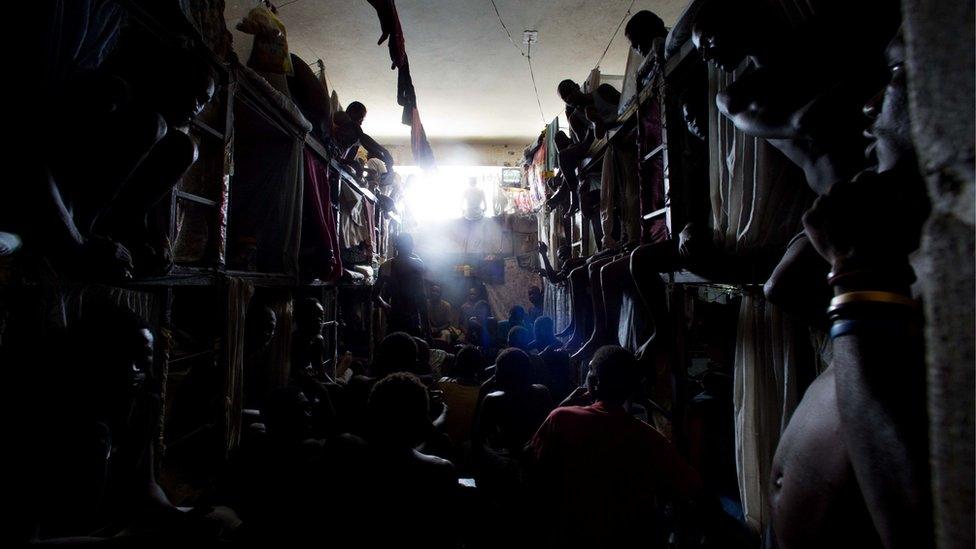
Some 4,400 inmates are housed in squalid conditions at the National Penitentiary in the centre of Port-au-Prince, just a block away from government headquarters.
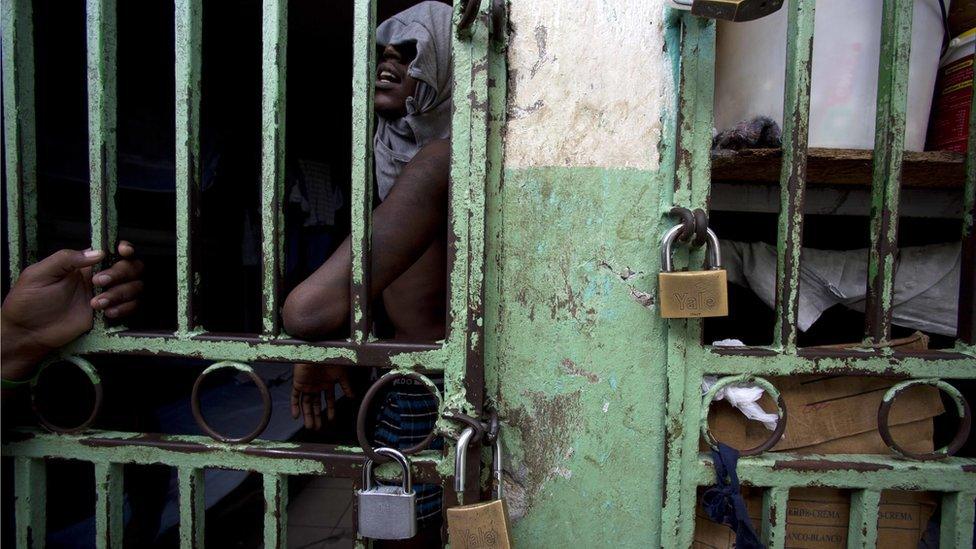
Cells originally made for 20 inmates are crammed with between 80 and 100 men, who remain locked down for 22 hours a day.
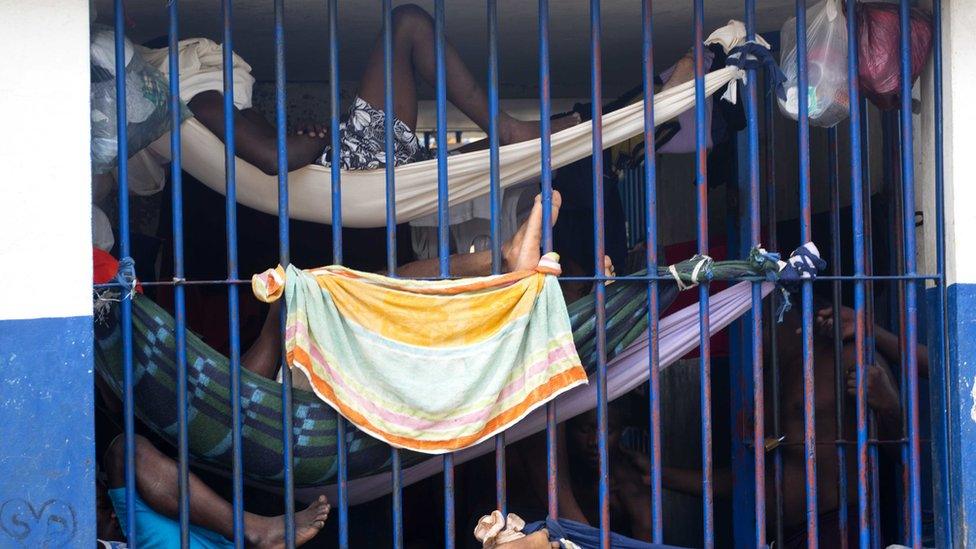
Many prisoners sleep in makeshift hammocks suspended from the ceiling or squeeze four to a bunk. They are forced to defecate into plastic bags as there are no latrines in the cells.
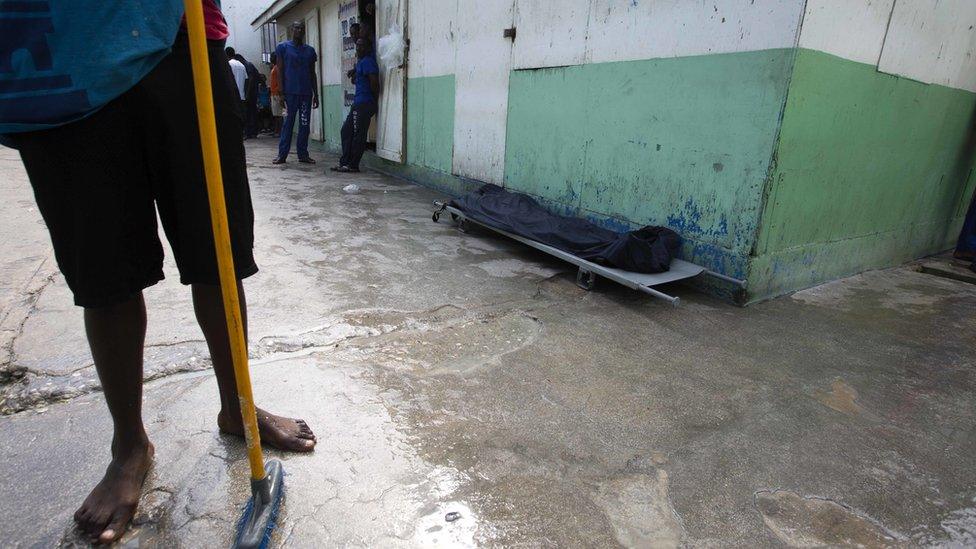
Overcrowding, malnutrition and infectious diseases have contributed to an upsurge of inmate deaths at this prison - 21 died just last month.
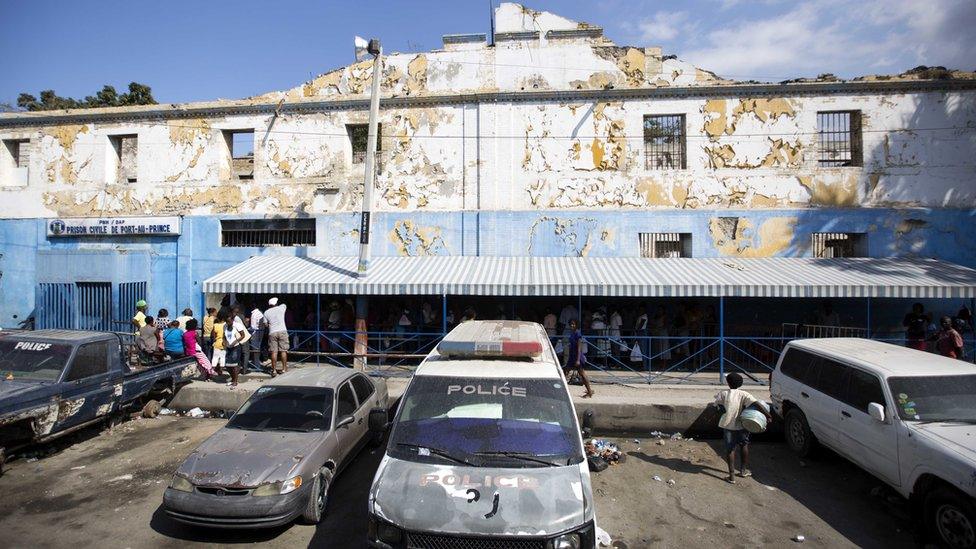
Conditions in Haiti prisons were considered "inhumane" by the Inter-American Court of Human Rights in 2008.
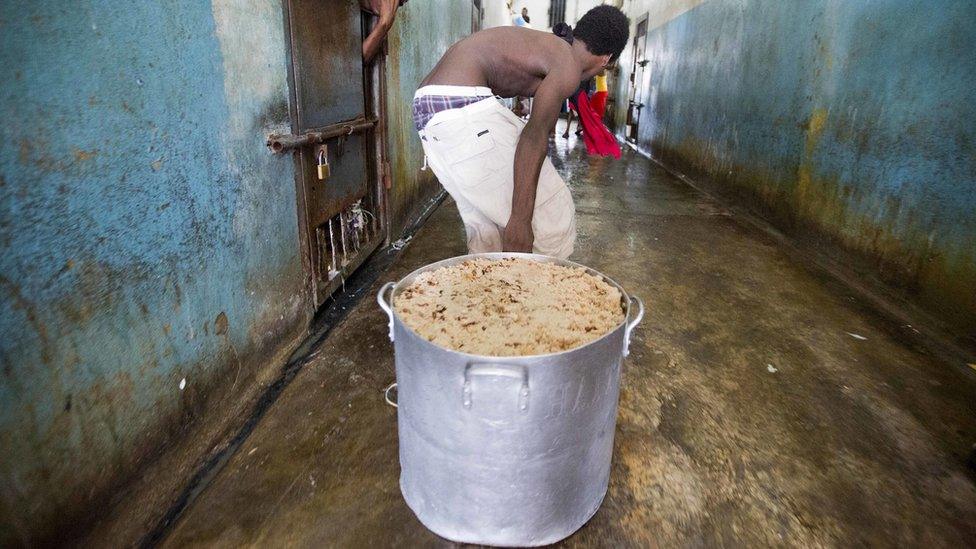
Visiting relatives are allowed to bring in food and cigarettes to prisoners. But the large majority are dependent on the prison's meals, served twice a day. The meals are made of rationed supplies of rice, oats or cornmeal.
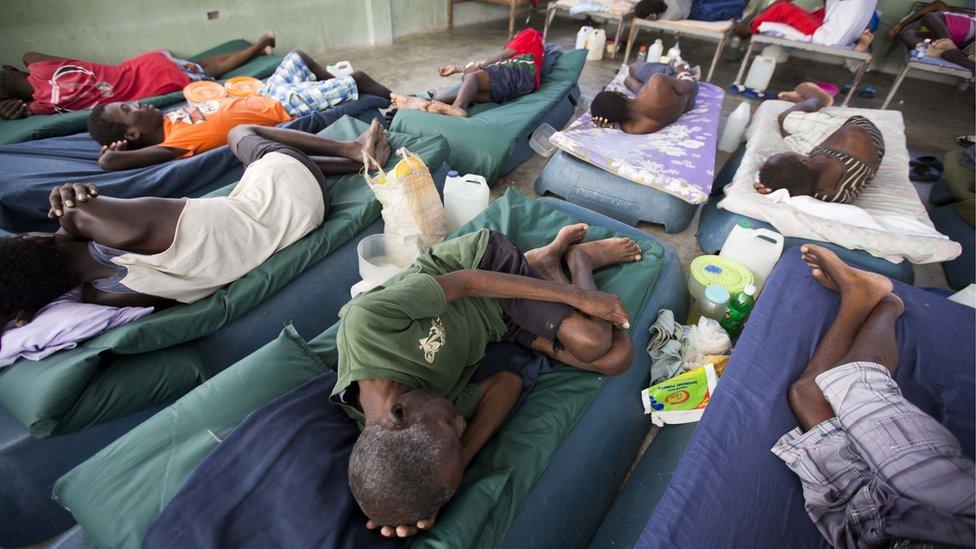
Food provisions have been affected by insufficient state funds, according to prison authorities, leading to deadly cases of malnutrition-related ailments such as beriberi and anaemia.
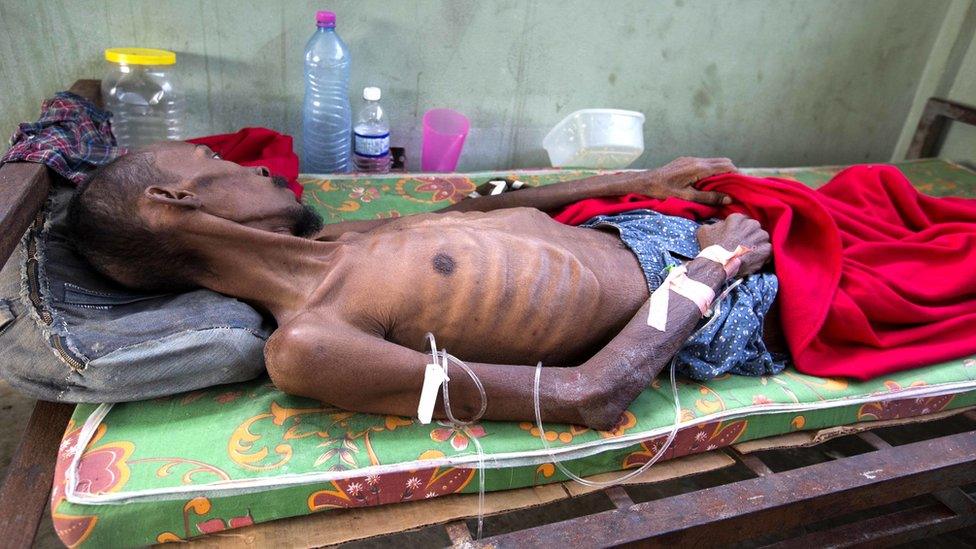
This prisoner, too weak to stand, has been treated at the penitentiary's infirmary.
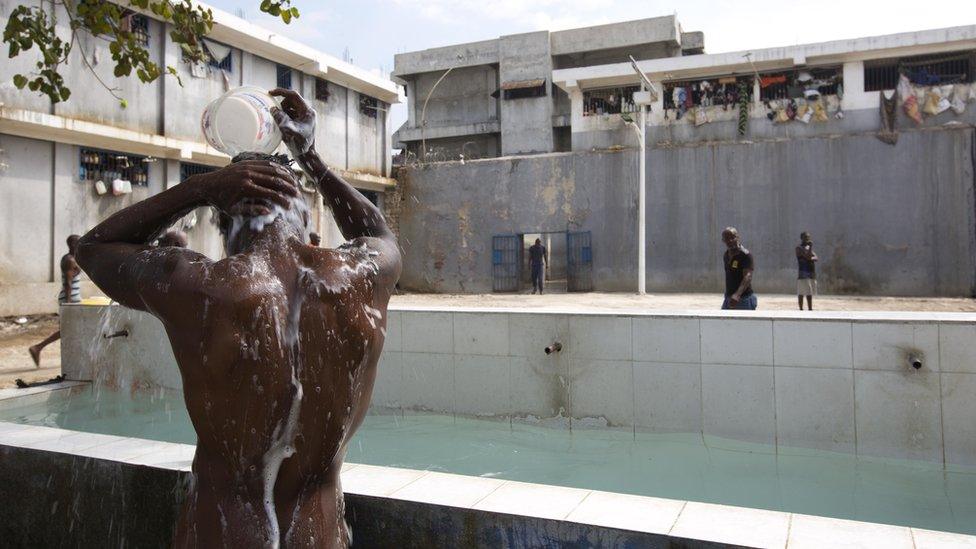
Even clean water was said to often be in short supply.
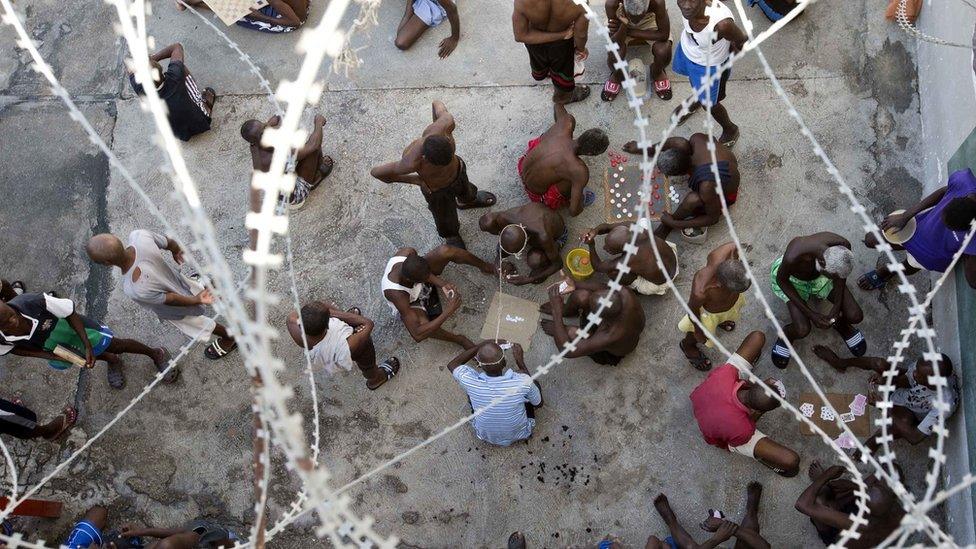
Some inmates spend the recreation time playing checkers or dominoes.
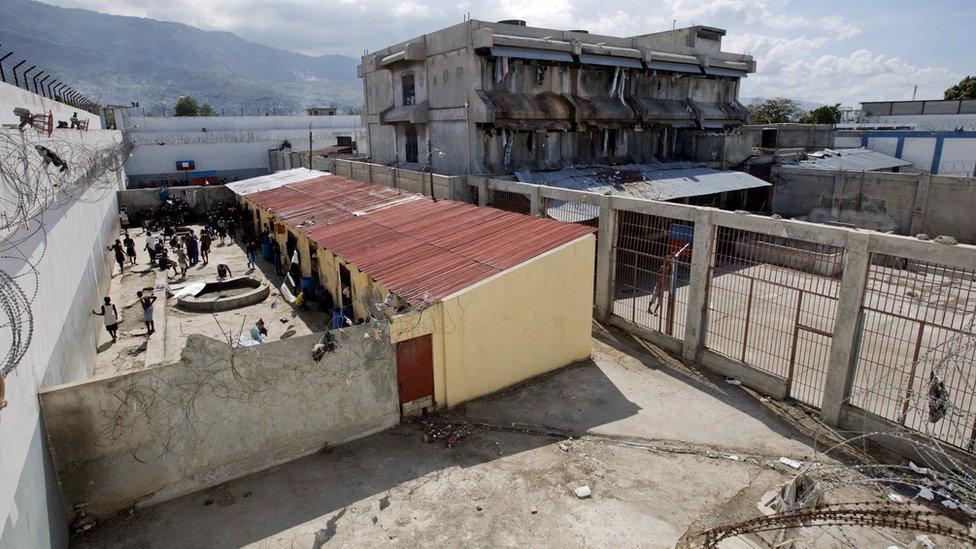
A prisoner told AP: "This is hell. Getting locked up in Haiti will drive you crazy if it doesn't kill you first."
- Published21 May 2024
